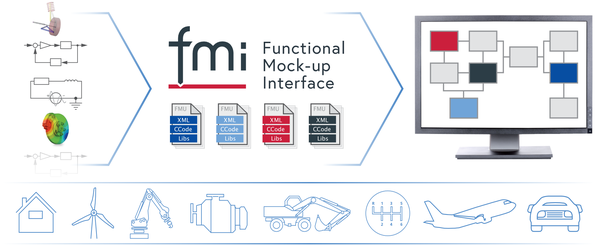FMI 3.0 - a major milestone for interoperability in system modelling and simulation
The creation of the Functional Mock-up Interface (FMI) Standard developed in the in ITEA MODELISAR project and the extension towards embedded systems, eFMI, developed in the EMPHYSIS project, were highly successful outcomes of ITEA projects. The FMI has proven itself as the most widely adopted format for system simulation model exchange and the de facto industry standard for model exchange and co-simulation. FMI version 3.0, now released by the Modelica Association, is a major milestone for interoperability in system modeling and simulation.

FMI 2.0 has established itself as the most widely adopted format for model exchange and co-simulation since its creation as the result from the publicly funded MODELISAR project. Ten years after the end of the project and funding, FMI is used more than ever and the FMI-project is still active through voluntary contributions of the participating companies and organisations. The royalty-free nature of Modelica Association standards and availability of open-source and commercial solutions right from the first publication have contributed to its rapid and wide adoption across many industries: automotive, aerospace, industrial equipment, buildings, energy, manufacturing, and others. More than 170 tools officially support FMI, and many more in-house solutions are built on top of FMI. Its adoption is still increasing at a healthy pace.
The development of FMI 3.0 has been guided by the experience from current end users and tool developers. The rapid digitalisation of the engineering development process, and the growing needs for collaboration between suppliers and OEMs require technical advances to FMI in order to continue the success story over the next decades.
FMI version 3.0, now released by the Modelica Association, is a major milestone for the standard with new features that enable the use of FMI in important new use cases: advanced co-simulation, virtual Electronic Control Units (vECUs), the next generation of digital twins, artificial intelligence, and autonomous driving applications.

For more information please read the complete press release from the Modelica Association.



